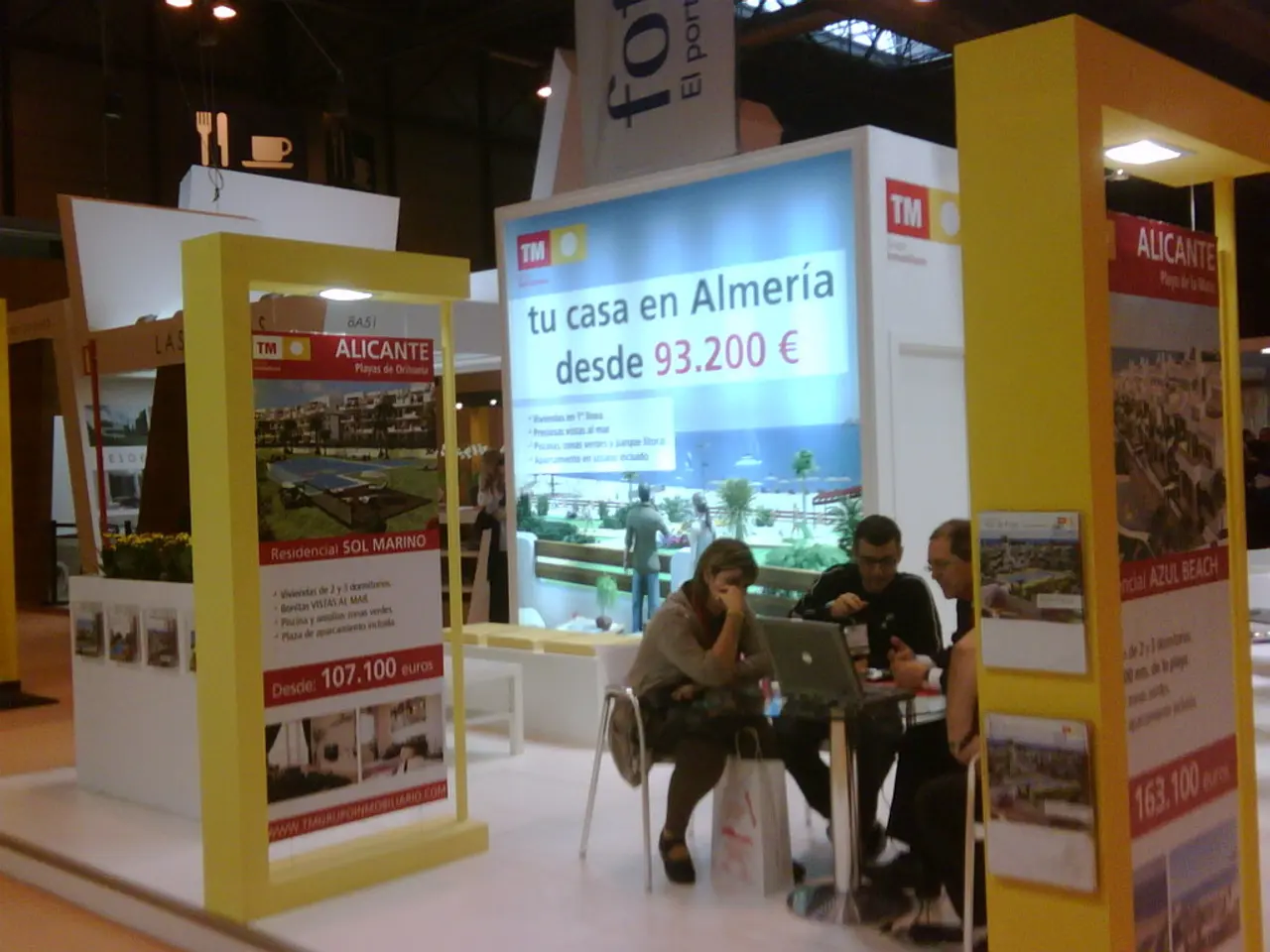The European Parliament Faces a Decision Regarding the Course of the European Community's Future
In the heart of Berlin, the Tegel Arrival Center has grown into a bustling hub for refugees and asylum seekers, serving as a temporary home for thousands. Originally planned as a short-term accommodation for Ukrainian war refugees, the center has evolved into a permanent camp, housing around 14,000 people.
The State Office for Refugee Affairs (LAF) is responsible for the accommodation of approximately 41,300 people in Berlin, with a significant number residing in the Tegel Arrival Center. The living conditions, however, have been a matter of concern, with functional sanitary facilities being a matter of luck and residents often walking in bathrobes on their way back from communal washrooms where showers and toilets are often broken.
The LAF is making efforts to improve the situation, seeking additional spaces in all districts that are suitable for different family constellations. They are also endeavouring to relocate families and individuals to accommodations where keeping pets is allowed.
The Senate Social Administration will soon name a new client to manage the new construction in Tegel. Currently, Messe Berlin, a company known for hosting large events like the International Radio Exhibition and the Green Week, manages the property and security services at the Tegel Arrival Center at the request of the Senate.
However, an internal audit report, first broken by the Tagesspiegel, accuses Messe Berlin of not adequately checking security bills totaling over 100 million Euros from 2022 and 2023. The allegations have not been confirmed by Messe Berlin, who state that every invoice is carefully checked in a multi-stage approval process.
The State Audit Office is currently silent on the matter, with results to be published in the annual report by the end of November. The investigation into these unchecked security bills continues, with the public awaiting the findings.
Meanwhile, around 1,850 people still live in the light hall structures at Tegel and are expected to move out by the end of the year. The people fleeing from Ukraine will be distributed to accommodations throughout the city, including hotel complexes on Landsberger Allee and a large accommodation in Spandau.
The Tegel Arrival Center also offers facilities such as a veterinarian, an emergency station, delivery station, palliative station, and children's playgrounds. In the living areas, residents have access to plastic chairs and wobbly tables where they can drink coffee and tea.
As the investigation into the security billing issues continues, the LAF and the Berlin Senate are working diligently to improve living conditions at the Tegel Arrival Center and find permanent solutions for the refugees and asylum seekers residing there.
Read also:
- Discussion between Putin and Trump in Alaska could potentially overshadow Ukraine's concerns
- Court petitions to reverse established decision on same-sex marriage legalization
- Independence supporters in New Caledonia refuse agreement offering authority without a vote on sovereignty
- Proposed Standardization of Food Labeling Laws Among Member States by the Commission








